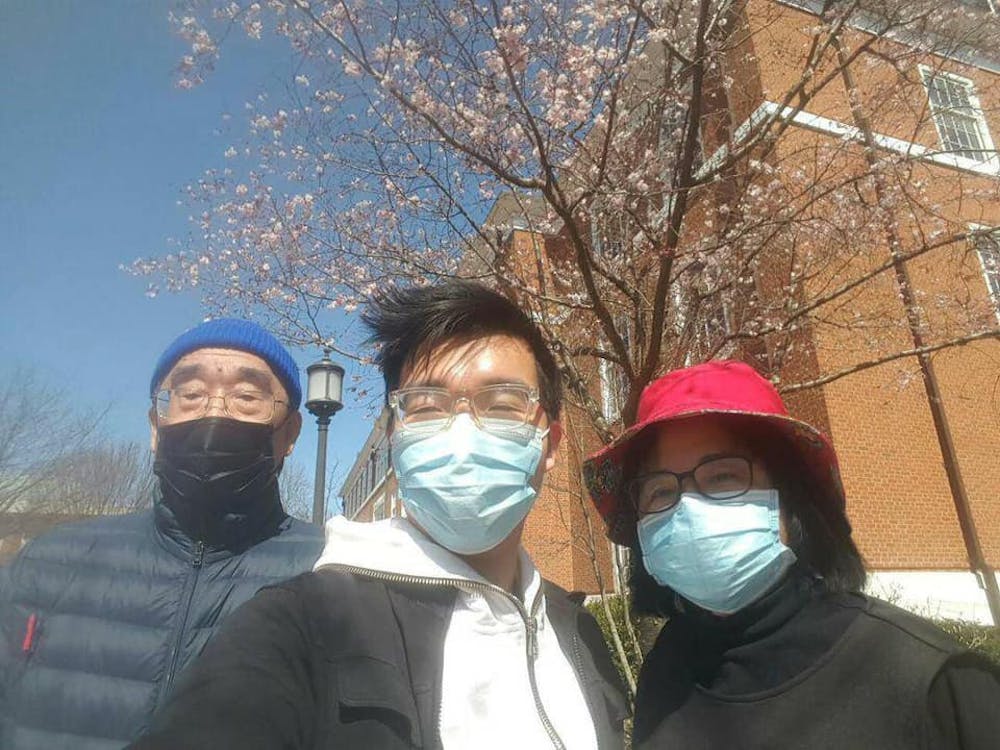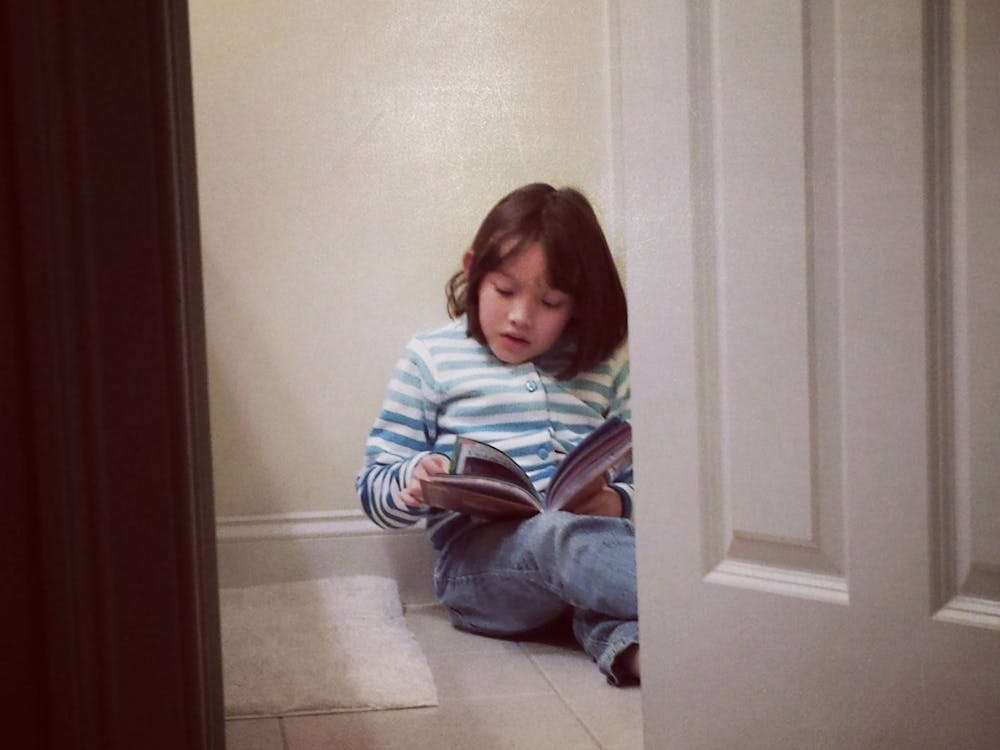
“We can buy that for you,” my mom told 4-year-old me, “but your dad will have to sweat a whole wok full of sweat for us. Do you still want it?”
I quickly put the toy back. Magically, my mom just taught a 4-year-old how money worked — for us.
My dad worked in an oily, smoky inferno of a Chinese kitchen. The summers were punishing. He stood 12 hours a day, almost no days off. Growing up, I never really saw him. My mom said he described my height horizontally, because when he came home, I was asleep, lying down.
When the pandemic happened, restaurants closed, and he had his first Christmas dinner with us in the 42 years since he came to America (more here). Otherwise, he was behind the scenes, silent and steadfast, keeping our lights on. But since I never saw him, I didn’t really know what it was like to look up to a man.
I also didn’t know what it was like to celebrate my birthday regularly. It was something my parents didn’t really do. But for my 10th birthday, my mom told me I could invite my friends to the science museum, a place I loved. I immediately asked her: “But how many woks full of sweat will dad have to fill for me to have a birthday party like that?” My mom told me not to worry — 10 was a BIG number! I slowly agreed.
Birthdays looked different for my parents. If they got an egg on top of their rice for their birthday, it was already special. For them, growing up post-World War II, the world (except for the US) was in shambles. Taiwan, their home, was experiencing a geopolitical crisis, serving as the home base to the Nationalists who just lost the Chinese Civil War.
My dad lost everything twice: once when his family fled to Taiwan from the traumatic Chinese Cultural Revolution (and the largest man-made famine in history), and a second time when he came to America. My dad doesn’t know when his real birthday is. Back then, people registered newborns late in case their children didn’t make it past infancy.
I faced different challenges growing up. I was my parents’ voice. Whether it was helping my mom study for her citizenship test when I was 5, helping them fill out forms or advocating and translating for my mom in court because her company caused her physical harm, I was their window to the world.
But my parents were my windowsill and walls holding me up. Even when I went to community college (before I transferred to Hopkins), I was still extremely privileged. Someone took me to school. Someone made me food. I got music lessons. I got to study abroad. I had never experienced homelessness before. Yet so many of my peers at community college just couldn’t say the same: Being nurtured is a privilege that not everyone has.
Simultaneously, my parents weren’t perfect to me, and I have many complaints. But I sometimes wonder if I could even be half the parents they were.
To my surprise, I am the only Taiwanese/Taiwanese-American First-Generation, Limited Income (FLI) student I have met. When I first met other Taiwanese and Asian students here at JHU, I was so excited! I had never been around so many before in my life; I was often the only one in my classes.
But suddenly, I realized that I’d never find a community of people I could relate to. Unlike many Taiwanese-American students here, my parents were never invited into the US because of the graduate programs they studied. They didn’t even go to college. When I went to community college, my parents never blamed me, but they had to lie to everyone in the Asian community about what I was doing, because community college was oh-so shameful.
I also couldn’t relate to many other students here because I didn’t want to become a doctor (joke’s on you, I’m at Hopkins). Nor a lawyer. Nor an engineer, a software engineer, a big pharma employee, a defense employee, a consultant, a finance bro … Believe me, I’ve tried. I’ve tried to force these careers on myself — doing my research, informational interviews, taking classes, taking internships — and it just wasn’t for me.
But Hopkins was my ticket out: I don’t want to waste this opportunity. Honestly, I got lucky coming here. Community college transfer rates are scarily low. I was also stressed out of my mind about paying for college. I was the only source of income for our household for nine months during the pandemic, and my parents were going to need me to support them after. It’s something I want to do. They did it for me. Maybe you can imagine the relief I felt when Bloomberg made a record donation the year I got in. Suddenly, for once, money wasn’t a problem.
Sometimes, I blame myself for not being the “right kind” of kid. Maybe it’s the pressure from people at home, or people here. It definitely makes my wishes to continue video directing and producing, comedy and dodgeball seemingly scarier and scarier. And while money is necessary to live, I do realize at least a few things: I don’t need all the money in the world to have culture. I don’t need it to be loved. I don’t need it to realize the outpouring beauty of what makes life worth living.
For every FLI student here, stuck in between what they feel they “should” do and what they love doing, for every FLI student stuck between two torn worlds distanced by socioeconomic class and cultural backgrounds, I want you to know that we’re all still figuring this out. No one has the right answer. But we can make our own answer. And I’m so excited to see you bring yours to life.
Keidai Lee is a senior from Rochester, N.Y. studying Philosophy and Computer Science.





